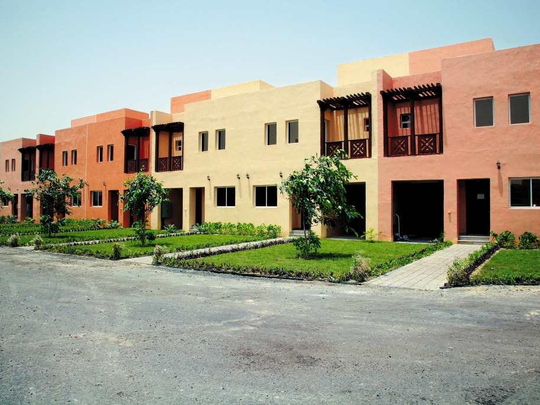
For years, Abu Dhabi’s property sector has paled next to its more dynamic and dazzling neighbour — Dubai. But that may well change, as the emirate engineers and experiences buoyancy that will attract billions in investment. Here are some facts about realty in the capital, and what this year has in store for the industry.
Sale prices are soaring
Real estate advisory firm JLL estimates that prime residential sale prices in Abu Dhabi jumped 25 per cent last year. Meanwhile, according to real estate services firm Asteco, apartment sale prices rose 29 per cent in the fourth quarter, compared to the same period in 2012. Insiders say these investors originate largely from the Gulf states, India and China.
Interestingly, cash-rich residents of Dubai are also considering property investments in Abu Dhabi because the yields are deemed stronger.
Apartments become fashionable
Although Abu Dhabi and Dubai have similar populations of just more than two million, Dubai has for long had a more active and open realty market. A key reason is that Abu Dhabi has hitherto favoured villas and has only now started supplying the high-end apartments preferred by international investors. According to JLL, average apartment prices are currently Dh1,190 per square foot in the capital, only marginally below Dubai’s Dh1,220.
Zoning could change rental sector
According to a report in Arabic media in early February, several government bodies are considering the division of Abu Dhabi into ten or 12 zones, based on rent levels and market data analyses.
Furthermore, each zone will be featured in an ideal rent index, with rates that will prove fair to tenants and investors and also help settle disputes among them. The entities compiling the index are the Departments of Municipal Affairs and Economic Development, the Urban Planning Council and the Abu Dhabi Council for Economic Development.
Relocation continues to drive demand
Although there was a September 2013 deadline for Abu Dhabi’s public sector employees living outside its borders to relocate to the emirate (or face losing their housing allowance), no facts are available for whether the policy was implemented in full, or how many families moved in response. This government initiative was aimed at thousands of people living in Dubai and commuting to work in the capital. >
It is believed that a large number of people are still in the process of relocating, thereby boosting demand.
Barring the rent cap raises the bar
In November, Abu Dhabi scrapped its existing 5 per cent cap on annual rent increases in order to make property investments more attractive. The average increase in rent since the start of the year is pegged at 10 per cent, but residents complain that some landlords have hiked rent by as much as 40 per cent.
Leasehold to freehold will lure investors
In January, Abu Dhabi Municipality announced that foreigners can own property in the emirate on a freehold basis in designated investment zones, and that units in these zones will be registered under Abu Dhabi’s freehold law, with property ownership deeds issued to investors.
Previously, foreign investors in Abu Dhabi property were limited to leasehold arrangements with 99-year leases. “This marks the launch of a very important phase in the development of the real estate market in Abu Dhabi and presents us with new opportunities for growth and development offered by Abu Dhabi’s economy,” Abubaker Seddiq Al Khouri, Chairman of Aldar, said in a Municipality statement.
Big interest in high-end properties
Abu Dhabi-based developers such as Aldar, Tamouh and Manazel have finally begun announcing high-end apartment projects, suggesting they are aware and alert about the wide demand. For instance, Aldar Properties, in its regulatory filing to the Abu Dhabi Securities Exchange at the start of the year, said it will build 1,000 units on Abu Dhabi Island, Yas Island and Al Raha Beach. The developer will launch them in the first half of this year, and the projects will be constructed in phases.
Hotspots have the highest rental growth
Although rents in most parts of Abu Dhabi are moving upwards, properties in Al Reem and Al Reef are seeing keen interest from potential tenants, because they feature several amenities and facilities.
Likewise, there is great demand for residential units at Saadiyat Island and Hydra Village, leading to a steady increase in prices. According to industry estimates, rents in Abu Dhabi’s prime residential areas increased by around 17 per cent last year, and further hikes are expected this year.
Better remuneration will lead to affordable rents
In early January, recruitment consultancy Robert Half predicted that salaries will experience a moderate rise this year compared to the past three years, and a survey by human resources consultancy Mercer suggests that 24 per cent of companies in Abu Dhabi intend to raise the housing allowance for their employees.
These findings imply that residents may be able to cope better with rising rents. Nuno Gomes, Information Solutions Business Leader Middle East, Mercer, says, “Almost one in four workers in Abu Dhabi looks set to receive a rise in their accommodation allowance.”
Sharing will continue to survive
Sharing apartments is already a common practice among working individuals and middle-income families in Abu Dhabi. Many companies also provide shared accommodation for their employees. Increasingly, older buildings are being used for this concept — minimal maintenance and security means less rent — but spiralling rents across most neighbourhoods mean that everyone will have to pay more, even for small shared spaces.
— Special to GN Focus








